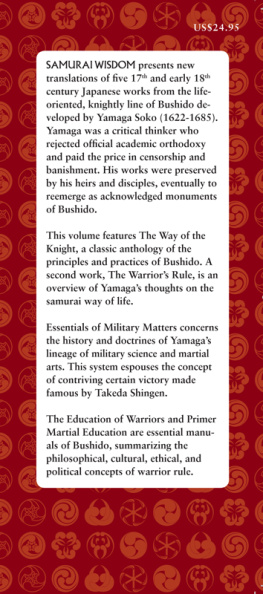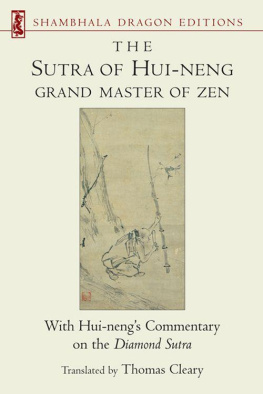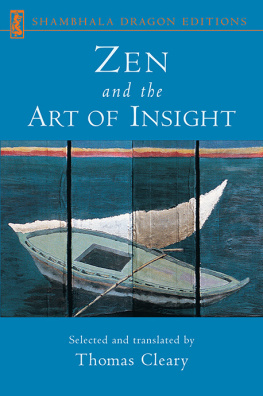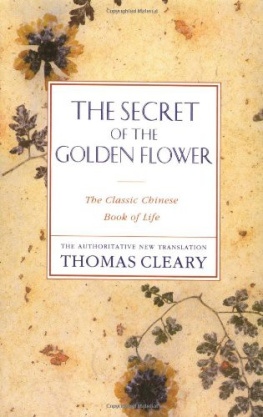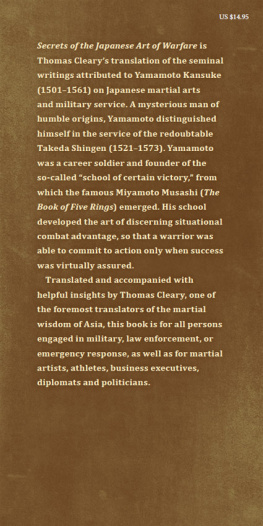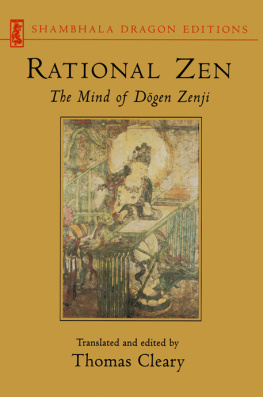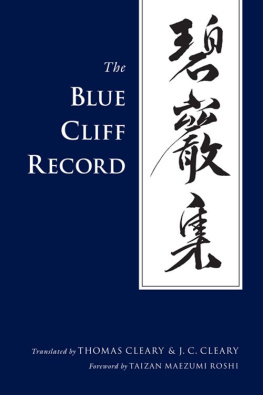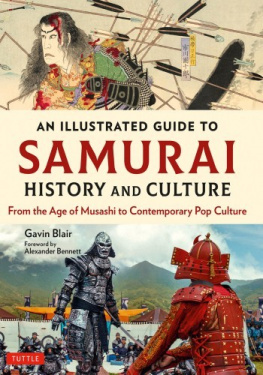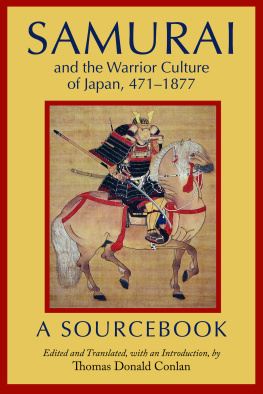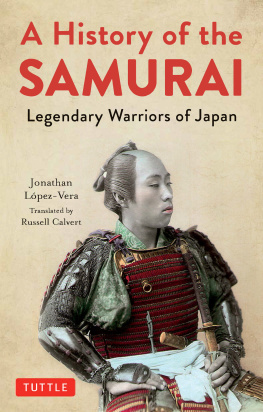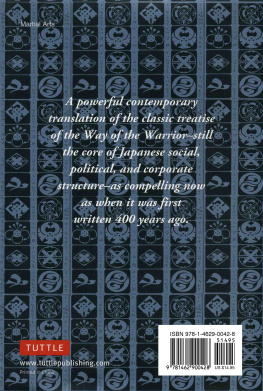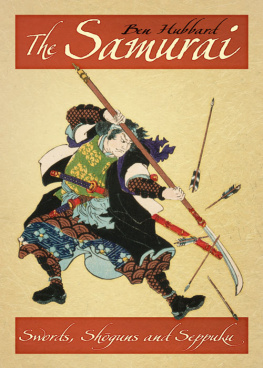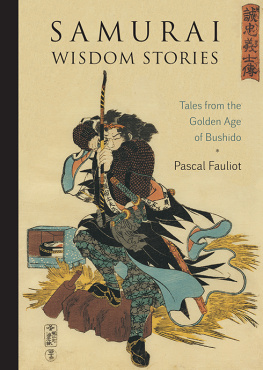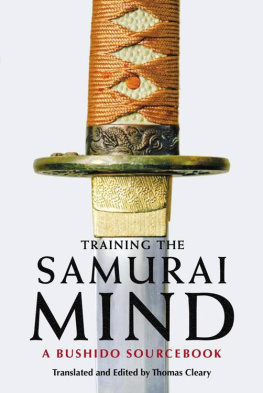BIBLIOGRAPHY
Asayama Ensho, ed. Rokujo Engi. Tokyo, Sankibo Busshorin, 1935.
Bi Yuan, Xu Zizhitongjian . Shanghai Guji Chubanshe 1987.
Chen Shou, San Guo Zhi. Beijing, Zhonghua Shuju, 1959.
Doi Takeo, Omote to Ura. Tokyo, Kobundo, 1985.
Du Yu, Chunqiujingzhuan Jijie. Shanghai Guji Chubanshe, 1988.
Fan Shoukang, Zhongguo Zhexueshi Gangyao. Taibei Kaiming Shudian, 1964.
Fan Xuanling, ann. Guanzi. Shanghai Guji Chubanshe, 1987.
Fujimoto Tsuchishige, ed. Bankei Zenji Hogoshu. Tokyo, Shunjusha, 1971.
Funai Koyu, Jinsei Gorin no Sho. Kyoto, PHP Kenkyusho, 1985.
Gao You, ed. Zhanguo Ce . Shanghai Shedian, 1987.
Goto Mitsumura, ed. Hakuin Osho Zenshu. Tokyo, Ryuginsha, 1934.
Han Fei, Han Fei zi. Shanghai Guji Chubanshe, 1989.
Ha-u Ho-o (pseud.), Gendai Sojizen Hyoron. Tokyo, Mizuho Shoten, 1970.
Hirano Jinkei, Nihon no Kamigami. Tokyo, Kodansha, 1983.
Hong Liangji, ed. Chunqiu Zuozhuangu. Beijing, Zhonghua Shuju, 1987.
Hosaka Koji, ed. Tsurezuregusa. Tokyo, Gakutosha, n.d.
Hosaka Koji, ed. Koji, Seigo, Kotowaza. Tokyo, Gakutosha, 1973.
Ikebe Yoshinori, Nihon Hosei-shi Shomoku Kaidai. Tokyo, Daitokaku, 1918.
Imamichi Tomonobu, Bi ni Tsuite. Tokyo, Kodansha, 1973.
Inoue Tetsujiro, ed. Bushido Shu. Tokyo, Shunyodo, 1920.
Inoue Tetsujiro, ed. Bushido Sosho . Tokyo, Hakubunkan, 1905.
Itasaka Gen, Nihonjin no Ronri Kozo. Tokyo, Kodansha, 1991.
Ito Shunko, ed. Eihei Koroku Chukai Zensho. Tokyo, Komeisha, 1964.
Jiang Yinxiang, tr. Shijing yaozhu. Beijingshi Zhongguoshudian, 1982.
Jojima Masayoshi, ed. Hagakure . Tokyo, Shinjinbutsu-Orai Sha, 1976.
Kabutogi Shoko, ed. Nichiren Bunshu . Tokyo, Iwanami Shoten, 1968.
Kanatani Osamu, tr. Lunyu. Tokyo, Iwanami Shoten, 1963.
Kanatani Osamu, tr. Sunzi . Tokyo, Iwanami Shoten, 1963.
Kanatani Osamu, tr. Zhuangzi. Tokyo, Iwanami Shoten, 1983.
Kaneko Daiei, ed. Kyogoshinsho. Tokyo, Iwanami Shoten, 1947.
Kawasaki Yasuyuki, etc., ed. Shukyoshi. Tokyo, Sansen Shuppansha, 1965.
Kiriyama Yasuo, Nenriki. Tokyo, Tokuma Shoten, 1975.
Kobayashi Katsundo, tr. Mengzi. Tokyo, Iwanami Shoten, 1972.
Koda Rentaro, ed. Shido Bunan Zenji shu. Tokyo, Shunjusha, 1956.
Kubota Jun, ed. Myoe Shonin Shu. Tokyo, Iwanami Shoten, 1981.
Kusumoto Bunyu, Sodai Jugaku no Zen Shiso Kenkyu. Nagoya, Nisshindo Shoten, 1980.
Li Jiemin, tr. Weiliaozi yaozhu. Hebei Renmin Chubanshe, 1992.
Li Jiurui, Xianqin Shizi Sixiang Gaishu. Taibei Shudian, 1972.
Li Ling, Simafa Yaozhu . Hebei Peoples Press, 1992.
Li Zhi, Zangshu. Taibei, Xuesheng Shuju, 1974.
Liu Ji, Baizhan Qilue. Hebei, Guangming Ribao Chubanshe, 1987.
Lu Zhan, Song Sizi Shaoyao. Taibei, Shijie Shuju, 1972.
Matsushita Konosuke, Jissen Keiei Tetsugaku. Kyoto, PHP Kenkyusho, 1978.
Matsushita Konosuke, Keiei Kokorecho. Kyoto, PHP Kenkyusho, 1974.
Mizunoue Tsutomu, Ikkyu. Tokyo, Chuokoronsha, 1978.
Mori Keizo, ed. Kinsei Zenrin Genkoroku. Tokyo, Nihon Tosho Senta, 1977.
Mori Senzo, ed. Kinsei Kijin Den. Tokyo, Iwanami Shoten, 1940.
Morita Shoma, Meishin to Mozo. Tokyo, Hakuyosha, 1983.
Muji Zenji, Shasekishu. Kyoto, Heiryakuji Shoten, 1933.
Nakahara Toju, Nantenbo Angyaroku. Tokyo, Hirakawa Shuppansha, 1984.
Odaka Kunio, Nihonteki Keiei. Kyoto, Chuokoronsha, 1984.
Ogawa Tamaki, etc., tr. Shiki Retsuden. Tokyo, Iwanami Shoten, 1975.
Nukariya Kaiten, Wakan Meishi Sanzen Shu. Tokyo, Shueisha, 1915.
Obashi Shunyu, ed. Ippen Shonin Goroku. Tokyo, Iwanami Shoten, 1985.
Ogiya Shozo, Gendai Bijinesu Kingenshu. Kyoto, PHP Kenkyusho, 1986.
Ogura Masahiko, Chugoku Kodai Seiji Shiso Kenkyu. Tokyo, Aoki Shoten, 1970.
Omori Sogen, Ken to Zen. Tokyo, Shunjusha, 1983.
Qiang Yiqing, ed. Sima Bingfa . Lian-A Chubanshe, 1981.
Sahashi Horyu, Ningen Keizan. Tokyo, Shunjusha, 1979.
Sakurai Yoshiro, Chusei Nihon no Oken, Shukyo, Geino. Kyoto, Jinbun Shoin, 1988.
Sato Taishun, ed. Muchu Mondo. Tokyo, Iwanami Shoten, 1935.
Sekiguchi Shindai, tr. Makashikan. Tokyo, Iwanami Shoten, 1966.
Shangshu Zhengyi, Taibei, Zhonghua Shudian, 1977.
Shibata Renzaburo, Nemuri Kyoshiro Mujo Hikae. Tokyo, Shunjusha, 1981.
Sueki Takehiro, Toyo no Gori Shiso. Tokyo, Kodansha, 1970.
Suzuki Daisetsu, Imakita Kosen. Tokyo, Shunjusha, 1975.
Suzuki Tesshin, ed. Suzuki Shosan Dojin Zenshu. Tokyo, Sankibo Busshorin, 1962.
Takahashi Junichi, ed. Heike Monogatari . Tokyo, Kodansha, 1972.
Takeda Shinji, tr., Yijing. Tokyo, Iwanami Shoten, 1969.
Takuan Zenji, Roshi Kowa. Tokyo, To-A-Do Shobo, 1910.
Tiannan Yisou (pseud.), Zhouyi Qigong. Changchun Chubanshe, 1990.
Tsukamoto Zenryu, ed. Sekai no Rekishi. 4: To to Indo. Tokyo, Chuokoronsha, 1975.
Ueyama Shunbei, etc., Mikkyo no Sekai. Osaka Shoseki, 1982.
Wang Yi, ed. Huang Di Yinfujing Quanshu. Xian, Xiaxi Liuyun Chubanshe, 1992.
Watsuji Tetsuro, ed. Shobogenzo Zuimonki. Tokyo, Iwanami Shoten, 1929.
Wei Xing, etc., ed. Rujia Zhenyanlu. Inner Mongolia Peoples Press, 1997.
Yamada Kodo, ed. Zenmon Hogoshu. Tokyo, Koyukan, 1895.
Yamazaki Ichisada, ed. Sekai no Rekishi, 6: So to Gen. Tokyo, Chuokoronsha, 1976.
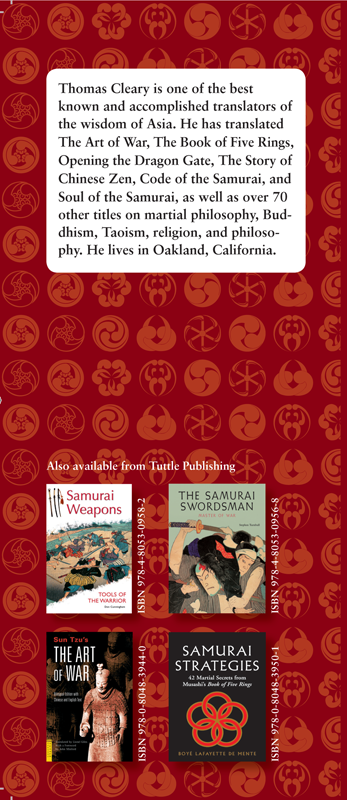
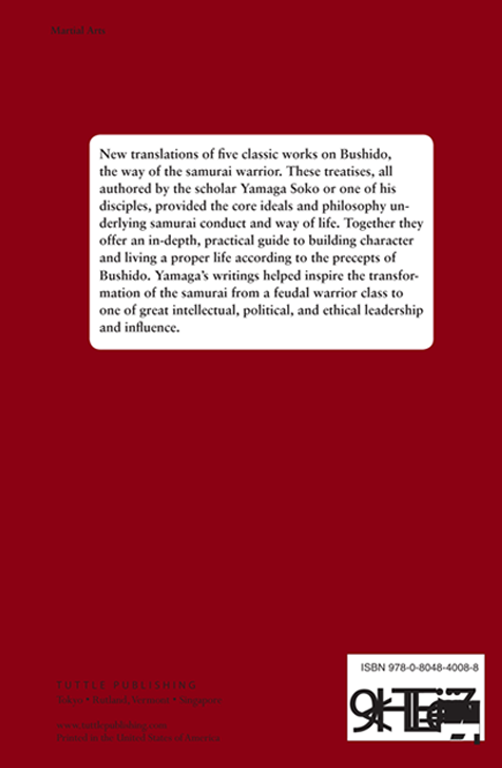
BOOK TWO
THE Warrior's Rule
By Tsugaru Kodo-shi
BOOK FIVE
Primer of
Martial Education
by Yamaga Soko
BOOK FOUR
The Education of
Warriors
by Yamaga Soko
BOOK ONE
The Way of the Knight
By Yamaga Soko
BOOK THREE
Essentials of
Military Matters
Compiled by Yamaga Takatsune
1. Establishing the Basis
Between sky and earth, humans and other beings are produced by the union of two energies. Humans are the most intelligent of all beings; humans are the most advanced of all beings.
Here, ever-reproducing humans may produce food by agriculture, or produce tools and goods by industry, or meet the needs of the world by commerce. So agriculture, industry, and commerce invariably arise together.
The samurai, however, eats without tilling, uses what he doesnt make, and earns without engaging in trade. Why is that?
As I reflect on my present status, I was born in a house of hereditary archers and cavaliers, and I am a public servant for the imperial court. I am one of those samurai, who do not till, manufacture, or trade. There must be a job for a samurai. Someone who eats without having a job should be called an idler.
We should turn our attention to ourselves and examine ourselves thoroughly. Who fulfills their nature by idleness, even be it plants and trees, lowly fish and insects, or birds and beasts, to say nothing of humans?
Birds and beasts fly and run to get food, fish and insects swim and swarm seeking food, plants and trees send their roots deep into the earth. Every one of them is preoccupied by the search for food, all the time, every day, all year long.
All beings are like this. In the human realm, farmers, artisans, and merchants are also like this. If it were possible to live out ones life without working, one should be called a thief of nature.
So why should knights have no occupation? Asking yourself this question, only by examining the work of a knight will the role of knights become evident. As long as you havent given this any thought, as long as you just go by what people say or what is written in books, since you havent realized it in your gut and heart, your aspiration is established on an extremely weak basis.

